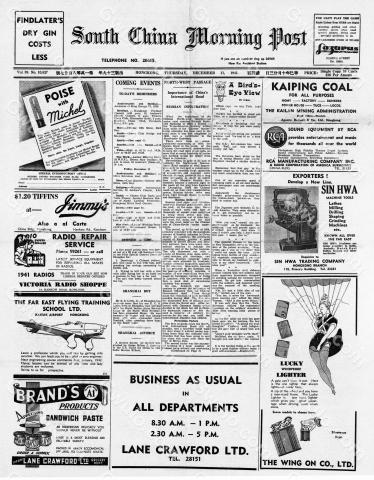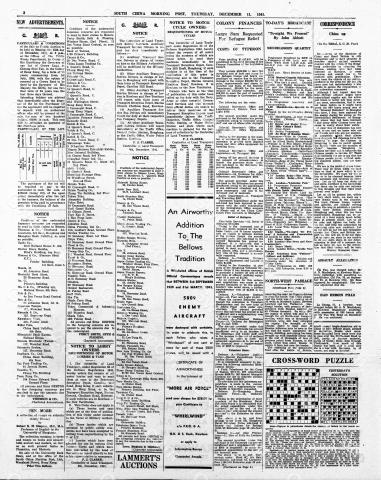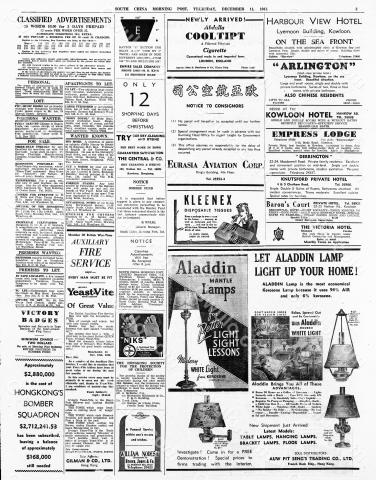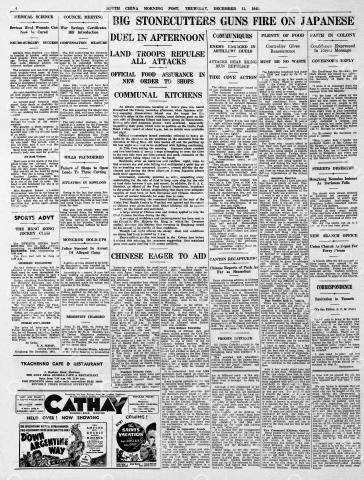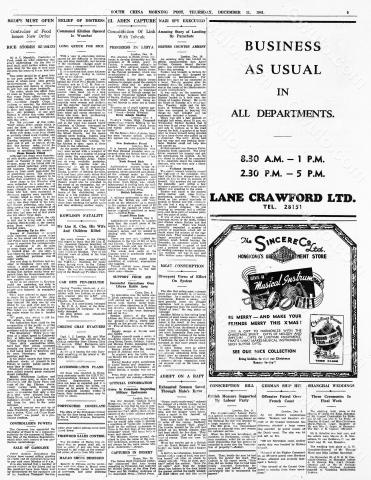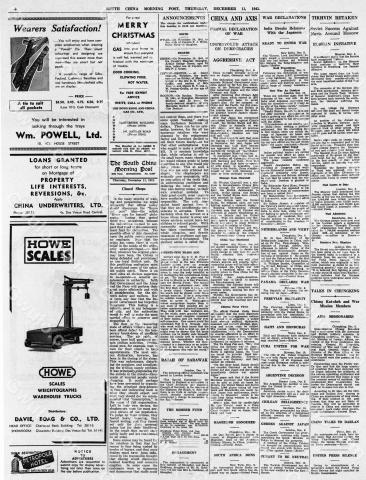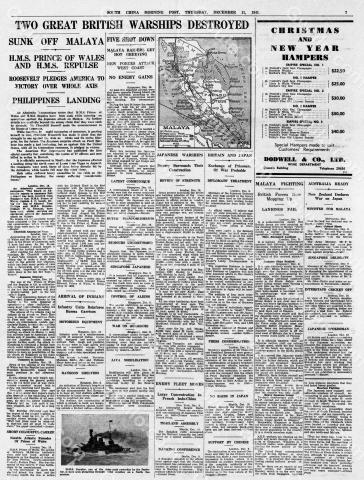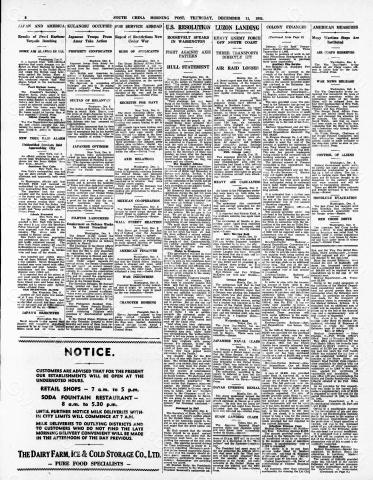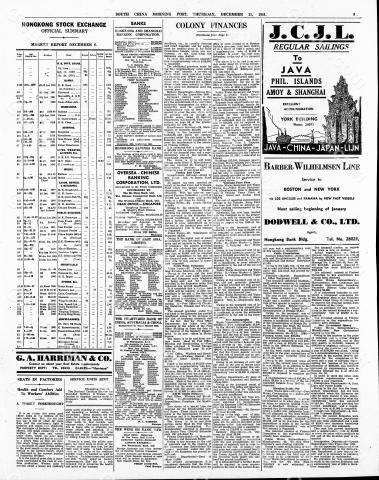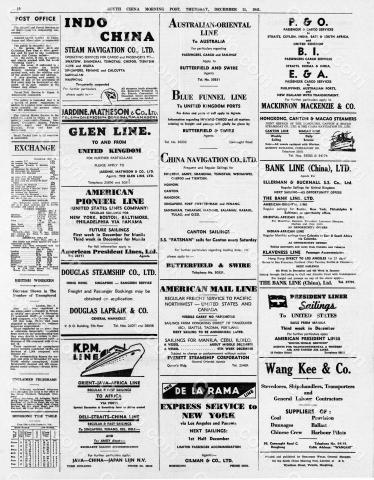The enemy were held by these positions until the night of the 11th December, when they broke through the thinly held line in the vicinity of SHING MUN REDOUBT. STONECUTTERS ISLAND was evacuated, the Coast Defence guns at MOUNT DAVIS, BELCHERS FORT, PAK SHA WAN, and STANLEY being used to shell the advancing Japanese.
The Castle Peak Road also came under fire from the R.N. Gunboat 'Cicala', operating along the coastline. Kowloon Railway tunnel and the New Territories roads were demolished at strategic points, culminating in the complete evacuation of the mainland on the 12th December 1941. The Rajputs were the last to leave and fought a very valiant rearguard action in the CLEARWATER BAY and DEVILS PEAK area, finally crossing to the Island in the vicinity of LYEMUN PASS.
At this time Hong Kong, covering an area roughly 12 miles by 3, housed about one million Chinese, plus the British, Canadian and Indian forces. There was very little organised protection from the frequent Japanese air raids as the nearest Japanese base was only about ninety miles northwest at CANTON. There were some air raid shelters, but these were hopelessly inadequate for the majority of the population. Water was a tremendous problem, as the main supply had previously been brought through a cross-harbour pipeline from Jubilee Reservoir on the mainland.
On the evacuation of the mainland by our forces, this, the chief supply for Hong Kong was cut off, so that we had to rely on water supplied from small reservoirs on the Island. The continual air raids were an added difficulty, disorganising much of the already depleted water supply. On top of all this, came the great problem of food distribution for the Chinese population. The incessant bombing was, of course, creating havoc among the civilian population and it was not very surprising when this, combined with the difficulty of obtaining food and water, resulted in frequent looting and hoarding of food stores. Hong Kong was now an easy target for an organised attack. At the outbreak of war, there were many ships, both large and small in the harbour and although many were sunk by gunfire to prevent their falling into the hands of the enemy, quite a number of the smaller craft were eventually captured intact by the Japanese.
After the mainland had been evacuated, the next few days were spent in feverish activity, preparing for the inevitable onslaught against the Island. Ammo dumps, supply depots, and workshops were shifted, as far as possible, from the vulnerable waterfront to safer spots behind the hills to the south. By now, we knew we were completely cut off from all outside help, although rumours were circulating that a large Chinese army would attack the Japanese from China.
We had no air or sea forces, our equipment was mostly obsolete, while the majority of our forces were new to the Colony. For instance, the two Canadian battalions had only arrived on 16th November 1941 and had no previous experience of the terrain on which they were soon to be fighting and were still without their own transport, which was still on board a ship in Manila Bay.
Owing to the great influx of Chinese refugees into Hong Kong during the previous few years because of the Japanese invasion of South China, the Japanese had considerable information regarding our defences as many of these refugees were employed as labourers on the building of military defences and some of them were reporting back to the Japanese. Also, there was a very active fifth column operating in the Colony after hostilities had started, signalling to the Japanese information of military interest. We were now bombed or shelled day and night and although the percentage of "Duds" was high, the shelling, on the whole was remarkably accurate.
On the 13th December the Japanese, under a flag of truce, demanded the surrender of the Colony, but the Governor, Sir Mark Young, summarily rejected this proposal. (This demand was repeated on the 17th with the same reply).
